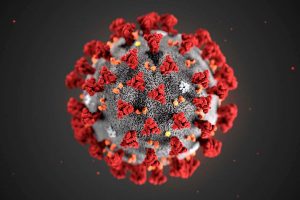Kay Sambell and Sally Brown: Covid-19 Assessment Collection

This page collects together the various posts and downloads published on this website since March 2020, about how university assessment may be adjusted and reimagined in the context of the pandemic affecting much of the world. We posted them on our websites so they would be immediately accessible and usable. However, some people told us they found it difficult to locate the papers and downloads on different posts so here they are, arranged with the latest first, and new entries are planned to be entered as we develop further thoughts and advice.
Published on 17th November 2021: Compendium 4: Thirteen authentic assessment examples from Hong Kong.
We are excited to present here 13 more examples of authentic assessment to complement our previous three compendia and two guest posts showcasing pragmatic ways of assessing students creatively. These are from the Education University of Hong Kong and Hong Kong Baptist University at HKSAR, and we are very happy to host these outputs of our collaborative work. Thanks especially to Professor Siu Cheung Kong of the Education University of Hong Kong and Dr Theresa FN Kwong of the Hong Kong Baptist University for helping us to make this happen. We always welcome further examples from around the world, so if you have good ones to share, please get in touch. HK-Compendium-4-FINAL.docx (3871 downloads)
 In this guest post, Dr Wendy Garnham of the University of Sussex outlines a novel approach to essay writing that aims to make the process of being assessed much more meaningful to students than is often the case in traditional conventional assessments. We are happy to include it here within the Covid collection because we think it exemplifies the move for which we have been arguing away from assessment just being seen as a product and towards being a vehicle for active student learning. As with many of the examples in our compendia, a single monolithic assignment is broken down into a number of subtasks, leading ultimately to a more thoughtful, personally relevant and engaging end product which is significantly more authentic. (The image is a Sketchnote by Katrina Swanton @SwantonSketches).
Wendy-Garnham-Blogpost-version-w.docx (2044 downloads)
In this guest post, Dr Wendy Garnham of the University of Sussex outlines a novel approach to essay writing that aims to make the process of being assessed much more meaningful to students than is often the case in traditional conventional assessments. We are happy to include it here within the Covid collection because we think it exemplifies the move for which we have been arguing away from assessment just being seen as a product and towards being a vehicle for active student learning. As with many of the examples in our compendia, a single monolithic assignment is broken down into a number of subtasks, leading ultimately to a more thoughtful, personally relevant and engaging end product which is significantly more authentic. (The image is a Sketchnote by Katrina Swanton @SwantonSketches).
Wendy-Garnham-Blogpost-version-w.docx (2044 downloads)

In Covid times universities worldwide have had to change assessment plans rapidly to meet challenging circumstances, and quality assurance systems have had to be flexible to cope!
Here we are proud to present a guest post “Here be dragons: The challenges of balancing quality assurance and pedagogy” by Gaby Tobin and Laura West-Burnham about how at Cardiff Metropolitan University they tackled the issue in particularly collegiate ways, focusing on quality enhancement approaches to make things work for everyone. Balancing-quality-assurance-and-pedagogy-w.docx (1830 downloads)
Published on 13th August 2021: Further feasible examples of fabulous practice.
Our Third compendium of assessment resources Episode Three: Authenticity Strikes Back! Compendium-Three-ww.docx (3269 downloads) brings together examples from Galway-Mayo Institute of Technology and the Universities of Aston, Cardiff, Lincoln, Aberystwyth, Edge Hill, Sheffield Hallam and Bedfordshire from the domains of Biosciences, Statistics, Immunology, Computer Sciences, Architectural History and Teacher Education, with links to additional Maths assessment resources. As always, we are grateful to our contributors for providing examples and allowing us to use their practice to exemplify our six-step approach as published here in the Covid Collection on 17th August 2020. We are always ever seeking more good ideas from colleagues internationally, so do get in touch if you would like your work included.
You can contact him at giuseppe.zurlo@nuigalway.ie
Published on 19th March 2021: A compendium of examples of authentic assessment in practice from diverse disciplines. In our paper of 17th August, Kay Sambell and I described a systematic approach to developing authentic assignments to replace more traditional or essay-based approaches. That paper included short examples showing how this approach could be used in Early Years Education, Physical Education, Health and Well-Being, and Business and Law. Here we provide a collection of 16 further detailed examples to illustrate our approach. We see this as a growing resource, so watch out for updates. Authentic-assessment-examples-compendium-w2.docx (4662 downloads) (Note that successive versions of this download are being added as corrections and additions are received – hence the change in ‘number of downloads’ field). Please note that example 3.2 was kindly provided by Thomas Broderick of Munster University of Technology.
Published on 21st August: 2020 ‘Changing assessment for good: a major opportunity for educational developers’ Our next item proposes that the current Covid crisis has provided opportunities for Educational and Academic Developers to undertake radical change management to improve assessment long-term, and that it is our duty to do so. SEDA-special-post-covid-assessment-aug15-w-1.docx (1598 downloads)
Published on 17th August: 2020 ‘Writing better assignments in the the Post-Covid19 era: approaches to good task design’ Writing-better-assignments-in-the-post-Covid19-era.docx (5359 downloads) This item in the postcovid assessment collection is an approach to writing more authentic assessments when we are replacing traditional exams long term. It can seem hard work to create new assignments from scratch that are authentic, challenging and engaging for students, so this approach tries to break down the task into its component elements to make the job easier to tackle. We particularly look forward to feedback from users of our approach if you find it useful personally or use it in workshops with colleagues.
Published on 1st June, 2020: ‘The changing landscape of assessment: some possible replacements for unseen time-constrained face-to-face invigilated exams’ is a paper in which we argue that some of the alternatives that universities have put in place for the coronavirus contingency should be made permanent, and that we should use this as an opportunity to make some radical and substantial reconfigurations to assessment in the future to make it more authentic. A particular feature is the comparison table where we explore the pros and cons of diverse assessments that can be done virtually. Download the paper here: The-changing-landscape-I-June-w.docx (5916 downloads)
Published on 2nd April 2020: ‘Fifty tips for replacements for time-constrained, invigilated on-site exams’ explores moving from invigilated exams to students sitting written assessments online from home. Download the paper here: Kay-Sambell-Sally-Brown-Coronavirus-Contingency-Suggestions-for-replacing-on-site-exams-w.docx (4857 downloads)
On the 13th of March 2020, early in the pandemic, as universities in the UK were closing normal campus operations, we put together some suggestions about some alternative forms of assessment which could be employed: ‘Contingency-planning: exploring rapid alternatives to face-to-face assessment’. Download our paper here: Contingency-planning-exploring-rapid-alternatives-to-face-to-face-assessment-w.docx (4655 downloads)

